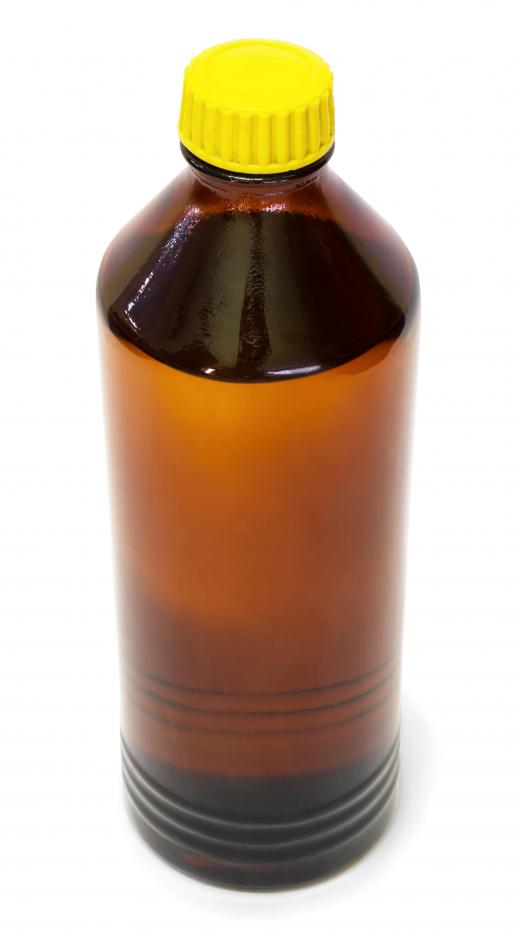An oil solvent is a chemical compound that breaks down petroleum products, such as oil, to leave a clean, oil-free finish on a floor, machinery or metal parts. Often used to clean a metal part after it has been machined, an oil solvent is used to remove all traces of the oil-based coolant used during the machining process. Another type of oil solvent is found in brake cleaning solvent. This solvent is applied to the braking surfaces of disk and drum brakes on an automobile to remove all traces of oil and grease. This allows the brake pads to work effectively without burning, smoking or slipping.
There are many various oil solvent cleaners designed to remove grease and oil from concrete flooring, metallic finishes and even clothing. Many dry cleaners offer spot removal that is accomplished with a mild solvent designed to rid garments of food stains and oily sweat stains. Many of the top laundry detergents sold for use in household washing machines contain one or more different solvents in the detergent. Grease-cutting floor cleaners are commonly used to clean oil spots from a concrete garage or shop floor with great success. Special grease and oil solvents are used to prepare a metal surface for painting, thereby ensuring that the paint will not bubble or blister up due to oil on the metal.

Many solvents designed to cut grease and oil are actually oil-based petroleum products. One of the better solvents on the market that can remove an oil film from a metallic surface is not typically marketed as a solvent at all; diesel engine starting fluid, commonly know as ether, is considered a very effective oil solvent. A small amount sprayed onto an oily surface and wiped clean with a soft cloth will result in an oil-free surface. Some other cleaners used to rid concrete of grease and oil stains are not petroleum-based.

Some mild acids are commonly used when cleaning concrete and are very capable of doubling as an oil solvent. Mineral spirits and turpentine are petroleum-based products also known for being an effective solvent when used properly. The danger when using some solvents is that the chemicals are easily absorbed into the skin, resulting in an itchy rash. This is due to the chemical makeup of the solvent being smaller than the chemical makeup of the oil, so the solvent can penetrate the oil and remove it from the bottom up. This also allows the solvent to easily penetrate the skin, causing irritation if not used with protective rubber gloves.
